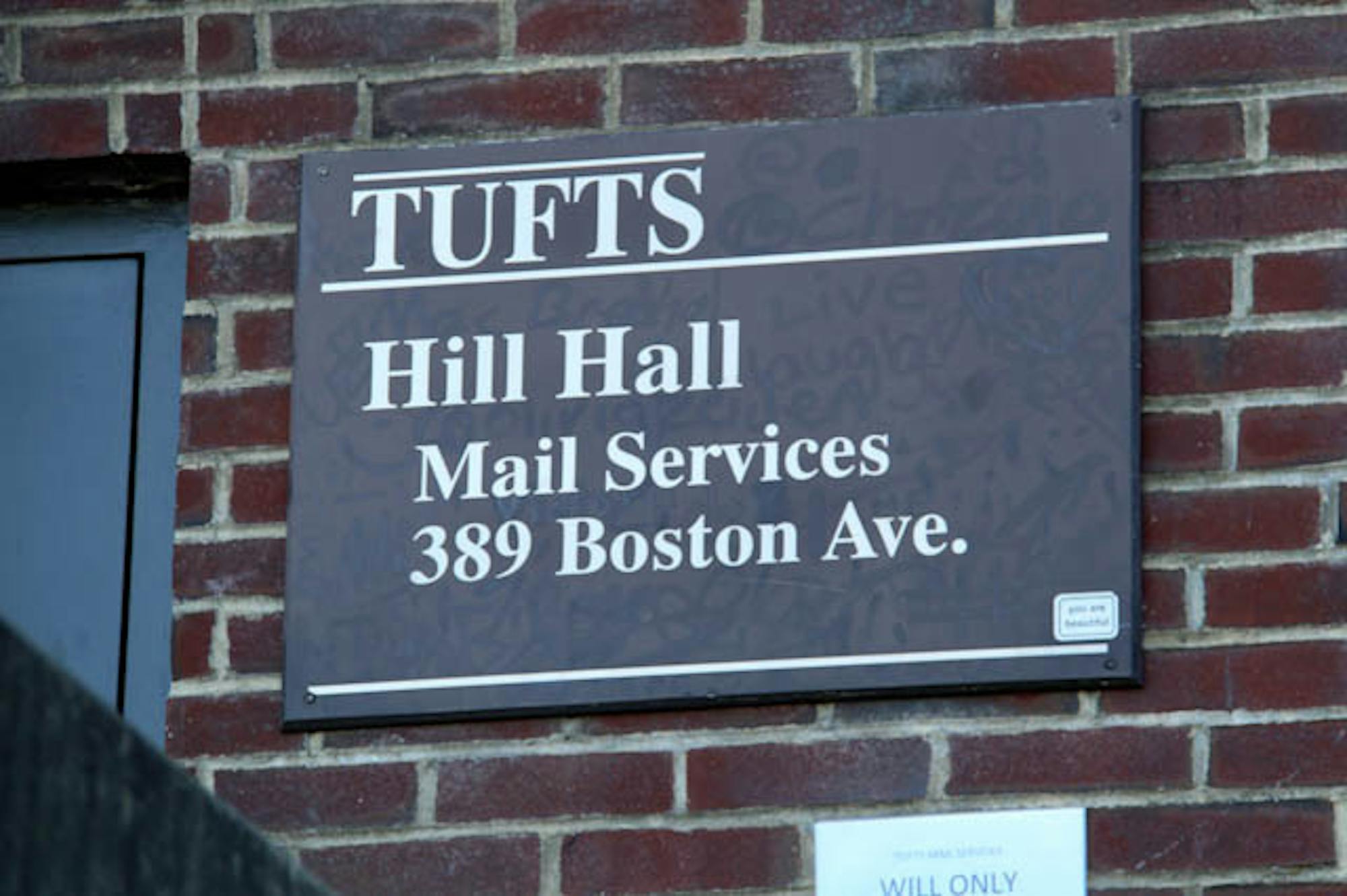One month ahead of Election Day 2020, JumboVote announced the Offline October challenge to the community: For the month of October, Tufts students and faculty were encouraged not to order nonessential items in an effort to help the mailroom prioritize election-related mail. The initiative was a partnership between three campus organizations: JumboVote, a voter education and voting advocacy group; Tufts Labor Coalition (TLC), a workers’ rights advocacy group; and the Eco-Representatives (Eco-Reps), an environmental education and sustainability advocacy group.
“Mail Services had been separating nonelection mail from election-related mail, which is an extra step in their normal workflow. They were having this already pretty big increase in nonelection-related mail, in addition to a major increase in election-related mail,” Matthew Tolbert, a senior who leads JumboVote's Democracy Reps program, said. Tolbert also pitched the Offline October challenge.
He said the initiative was created in part to get students their ballots more quickly.
“[Mail Services] couldn’t, from my understanding, effectively let people know that their absentee ballots had arrived in a timely manner, while also dealing with the flow of packages from Amazon and from [students’] homes,” Tolbert said.
According to sophomore and TLC Media/Communications team member Maeve McGean, JumboVote led the effort and reached out to the TLC because of its interest in supporting mailroom workers during the period of heightened traffic around the election.
“We were happy to partner with JumboVote and the Eco-Reps to promote #OfflineOctober … They took the lead in organizing the event and creating the graphics. So far, no mailroom workers have reached out about being overloaded with work, so hopefully the challenge has been effective,” McGean wrote in an email to the Daily.
JumboVote connected with the Eco-Reps for similar reasons.
“This kind of work is always the most effective when you have as broad of a coalition as possible,” Tolbert said. “This whole campaign wouldn’t have been effective unless we could get a critical mass of people to reduce their nonelection-related mail orders, so we thought, ‘How do we get to as many people as possible?’"
The next step for JumboVote was collaborating with other student organizations.
“We were thinking, ‘Whose mission does this align with?’ Reducing mail-related waste is something that definitely aligns with the work of the Eco-Reps,” Tolbert said.
The on-campus push for mail-in voting is sharply contrasted by President Donald Trump’s antagonistic words about it in the media, calling mail-in ballots “a whole big scam.” Anxieties about mail-in ballots received widespread coverage in the media this election cycle, Dean of the School of Arts and Sciences James Glaser said.
The first instance of national concern around voting securityemerged in the 1800s, when an influx of immigrants living in poverty created new constituencies for business-minded politicians.
“It’s why we have voter registration in this country. It was put into place as a good government or progressive policy,” Glaser said. But the current level of concern about voting security originates from a different place than the anxieties of the 19th century — and much of it is artificially made.
“[The risk of voter fraud] is ‘trumped up,’ so to speak,” Glaser said. “If you look, there are little bits of it here and there, but it’s very, very small — at least that’s what people who have studied it [have concluded]. They just haven’t found a lot of examples of it. But it’s certainly not a bad thing to be thinking about it. I think that the potential for outside interference with elections is definitely a well-founded concern.”
Glaser said the security of our election systems does not reside in voter fraud, but rather foreign intervention and misinformation.
“Foreign interference in elections — that’s something to be concerned about ... But there’s no evidence that [voter fraud is] happening in any kind of widespread way,” Glaser said. “That idea is a concoction of the president’s rhetoric.”
JumboVote, like all campus groups this semester, has adapted to the safety protocols put in place to help our community weather the coronavirus pandemic.
“JumboVote had a really big presence in 2018, and I think played a very decisive role in dramatically increasing our turnout since the 2014 midterm elections,” Tolbert said.
The organization’s presence was still prominent on campus this semester; alongside flyers providing information about the Offline October challenge, JumboVote provided online resources on itswebsite and held office hours twice a week throughout the semester to field questions from Tufts community members about everything election-related, an antidote for some of the concerns about electoral security.
Tolbert expressed interest in checking in with Mail Services postelection to see how successful the last month’s challenge had been. He has received positive feedback from Democracy Reps, a group of students assigned to dorms on campus to help other students register to vote and actively engage in America’s democracy in a variety of ways.
“I noticed a reduction in the number of people that said that they weren’t hearing from Mail Services about their absentee ballots, so anecdotally it seemed to work,” Tolbert said.
Voters on our campus and around the nation have now played the waiting game for results from the protracted vote-tallying process, a byproduct of large-scale use of mail-in ballots. According to data gathered by theU.S. Elections Project, 101 million ballots were cast ahead of Election Day. On Oct. 29, The Boston Globereported that 2 million votes had been cast in the Commonwealth of Massachusetts, which has a population of over 6.8 million.
Given the strong joint effort by JumboVote, TLC and Eco-Reps, a small but mighty percentage of those ballots came as a result of students who embraced the Offline October challenge this fall.






